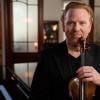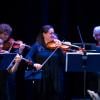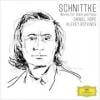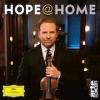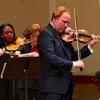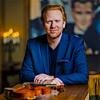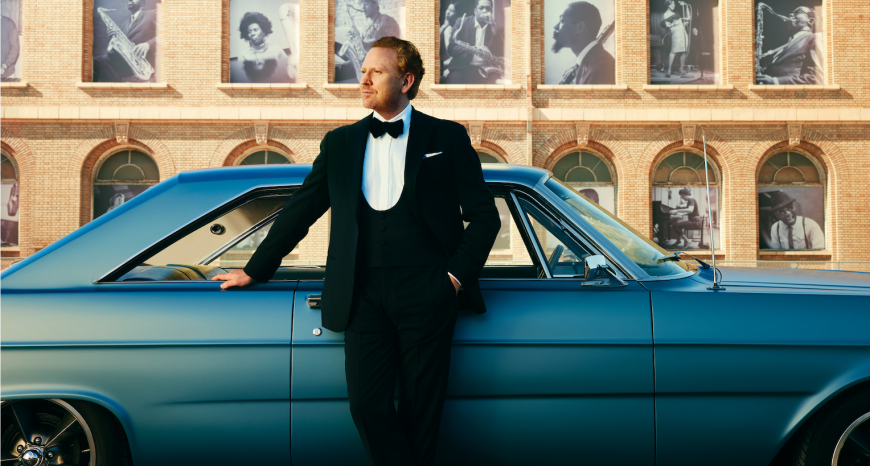
When writing about Daniel Hope, it may be easier to list what he is not doing than to enumerate his activities. Among the superstars of classical music, the Berlin-based world-trotting violinist is perhaps the most ever-present.
Starting with his current positions, Hope is music director of both San Francisco’s New Century Chamber Orchestra (following Nadja Salerno-Sonnenberg in 2017) and the Zürich Chamber Orchestra (where he succeeded Roger Norrington in 2016); president of Beethoven-Haus Bonn, named during the worldwide observations of the 250th anniversary of Beethoven’s birth; and also artistic director of the Dresden Frauenkirche, having concluded a 16-year run as associate artistic director of Georgia’s Savannah Music Festival.
Besides all that and numerous appearances as violin soloist with major orchestras and presenters, Hope is also a prominent “musical activist,” supporting human rights in words and deeds, engaged with and raising funds for Amnesty International and other organizations. During the recent pandemic lockdown, he organized fundraising for musicians in need.
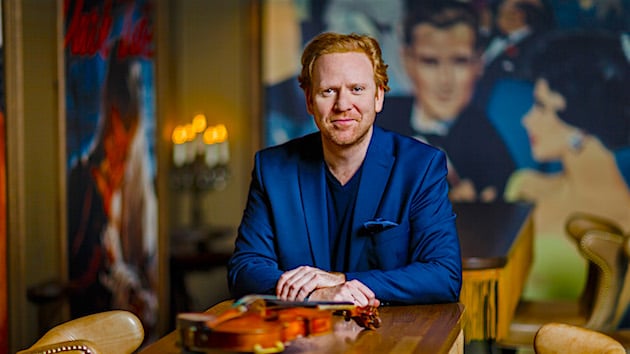
Hope’s continuing activity to focus attention on the Holocaust, especially in view of a current neo-Nazi resurgence, includes his participation in the documentary on Theresienstadt, Refuge in Music; the album Terezin, of music by composers who died during the Holocaust; another disc, Escape to Paradise, of music by Jewish composers who fled Europe and wrote film music in Hollywood; and his NCCO program, “Forbidden Music.”
A passionate advocate for contemporary music, Hope has commissioned and performed some 30 new works, collaborating with such prominent composers as Harrison Birtwistle, Sofia Gubaidulina, György Kurtág, Max Richter, Mark-Anthony Turnage, the late Peter Maxwell-Davies, Krzysztof Penderecki, Toru Takemitsu, and Alfred Schnittke,
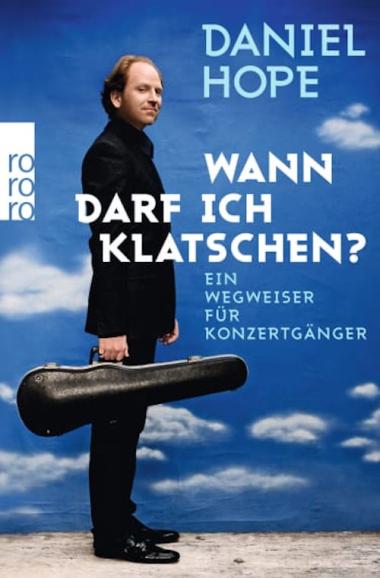
Hope, a prodigious musicological-historical researcher and writer of program notes and essays, and has also published four books (in German): Sounds of Hollywood, Family Pieces, Toi, toi, toi! and When Can I Clap?
He has written scripts for collaborative performances with actors Klaus Maria Brandauer and Mia Farrow. In Germany, he presents a weekly radio show for the WDR3 Channel and curates and hosts Hope@9pm at the Berlin Konzerthaus, a salon-style music and talk event with cultural and political guests.
And here are just a few more of Hope’s recent accomplishments:
- Deutsche Grammophon has released his latest album, America (on vinyl too!)
- ARTE is now featuring Hope’s collaboration with Lang Lang, Gina Alice Redlinger, Fatma Said, and Thomas Hampson in an extensive Christmas@Home program
- He is now leading the first major tour of the Zürich Chamber Orchestra since the beginning of the pandemic, a two-month long series of performances through Germany
- He produced a film about Ireland and his Irish heritage, to be broadcast March 17 on PBS for St Patrick’s Day
- During the pandemic, he produced Hope@Home, Hope – Next Generation, and Hope@Home on Tour
- Hope participated in Deutsche Grammophon’s Shades of Love: Korean Drama Soundtracks album
- He presented and played, on the 3sat TV Channel, 100 Years of Hollywood Music, “from Miklós Rózsa to Carlos Gardel, Leonard Bernstein to John Williams, and beyond”
Hope, 48, born in South Africa, is of Irish and Jewish German descent; his maternal grandparents, formerly from Berlin, escaped Nazism. His father is the novelist Christopher Hope, and his mother Eleanor Marilyn Margaret Klein Hope worked as an assistant to Yehudi Menuhin.
Six months after Hope was born, the family moved from South Africa to London, because of his father’s anti-apartheid views. In the UK, Hope was educated at Highgate School and studied at the Yehudi Menuhin School in Stoke d’Abernon. In 2011, he was appointed visiting professor by the Royal Academy of Music, where he had studied under Zakhar Bron.
Hope became the violinist of the Beaux Arts Trio in 2002. His solo career led to his decision to leave the ensemble, which then disbanded. The Beaux Arts Trio gave its final concerts in 2008, with Hope, including an appearance in San Francisco.
Of his series during the pandemic, the one focusing on young performers, Hope@Home Next Generation, was followed by the Hope@Home team traveling to San Francisco where Hope worked with the New Century Chamber Orchestra and other artists.
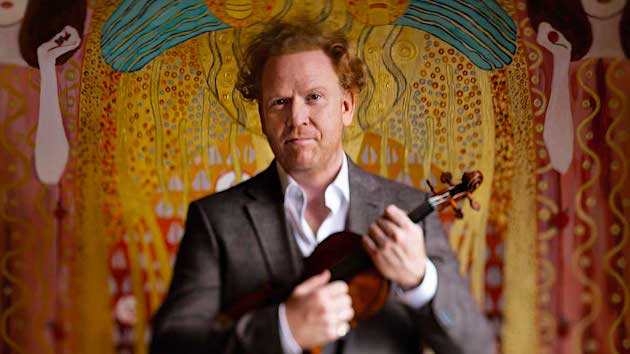
SFCV asked him a few questions and Hope responded by email from the road between concerts in Hamburg and Düsseldorf:
How did the German/Jewish/South-African/Irish background contribute to your life and art? Have there been any drawbacks from your ethic mix?
I have always regarded myself as a veritable mixture. And I can’t say I’ve ever found that to be anything less than unusually encouraging. I am deeply fascinated by so many cultures and influences: musical, geographical, and historical. They are all relevant in the work that I do and the music I make.
How much of your multilingual (German, English, French) ability is from childhood and family, and how did you maintain it? [Envy from me, unable to keep using more than one language at a time.]
I grew up speaking only English, even though my mother speaks six languages and my father three. It was only in my late teens that I picked up French and German. Both have had a huge impact on my musical research and understanding, I would say particularly German, because of the close links to my maternal family history.
Would you say more about your young years with Menuhin?
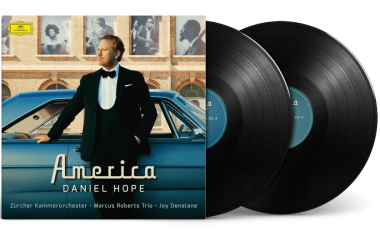
My father was fiercely anti-apartheid and his books and poems were banned by the South African government. We were given a so-called “exit visa,” which was delusory because it meant you could leave but never return and we were, in effect, stateless.
We ended up penniless in London, my father unable to find work. My mother discovered that we could apply for Irish citizenship because my father’s mother was Irish. That bought us valuable time to stay legally in the U.K., and my mother decided to find work to support the family.
One day, by a stroke of incredible luck, she was offered secretarial jobs to both the Archbishop of Canterbury and Yehudi Menuhin. She went for the latter, having heard the archbishop preach in South Africa and being incensed that he did not distance himself from apartheid.
I think it is safe to say that her landing the job for Menuhin changed our lives immediately and forever. He found a house for us, near his, and my mother went there to work every day, most of the time taking me with her so my father could write in peace. I would run around and cause havoc. But at the same time, we were all exposed to the most glorious music and musicians on a daily basis. Of course I had no idea who these people were!
But because it was Menuhin’s house, you could, on any given day, expect a Rostropovich, a Wilhelm Kempff, or a Ravi Shankar to walk through the door. It was truly extraordinary, especially for the musical diversity it presented, and, looking back, is unquestionably the greatest privilege and good fortune one could ever imagine.
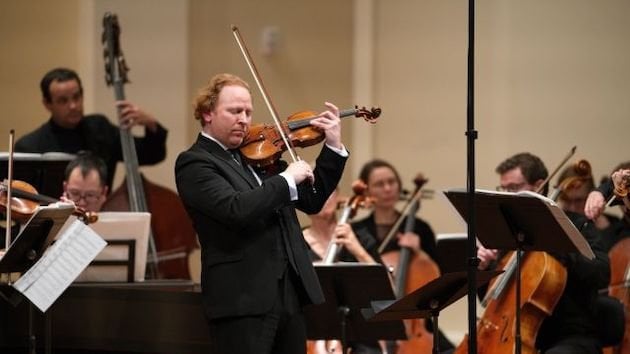
When omicron canceled your NCCO concerts last month, you still flew in for a few days — what did you accomplish with what appeared to be the “voyage to nowhere”?
I was just about to leave Berlin when we had the news that our concerts in the Bay Area were canceled. I made a conscious decision to come anyway: it had been several weeks since my last visit and I wanted our wonderful musicians to feel that I was there to show them support and to still meet with those who felt comfortable doing so, during these difficult times.
I also used the visit to strategize with our new executive director [Richard Lonsdorf] about our future plans and the next major European tour for NCCO, as well as being at the board meeting. We have a truly extraordinary board, full of great visionaries, and it seemed like a good opportunity to meet and talk with them, especially having more time than is usually available between rehearsals and concerts.
Among the many themed concerts and projects, which are your favorites and why? Can you say anything about such plans in the future?
We were all very disappointed to lose this set in the Bay Area with the singer Leah Hawkins. It was such a diverse and fascinating juxtaposition of Americana, from David Diamond to Florence Price and beyond. We are hard at work on the next season and already have some exciting thematic programs and commissions. We will give a 12-concert European tour in 2023 (the second since my tenure began) and we will release an album of works commissioned by NCCO for the Deutsche Grammophon label.
The inevitable question: How do you manage your schedule, which at times looks like the activity of several well-organized people?
With a sensational team and a lot of planning and discipline. Most importantly though, with the incredible support of my family.


